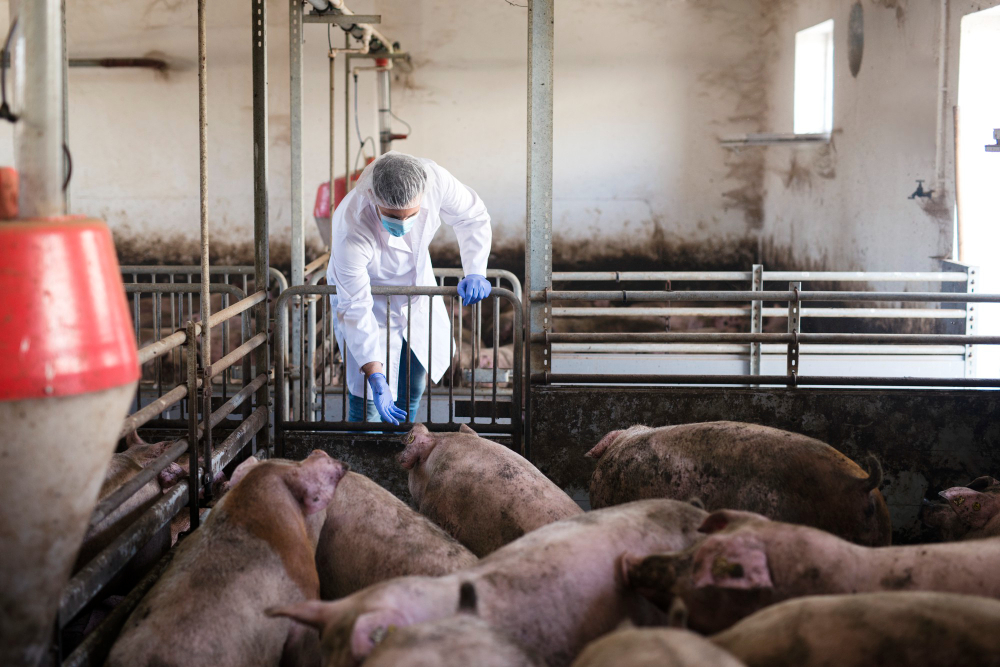Table of Contents
● What are pig feed additives?
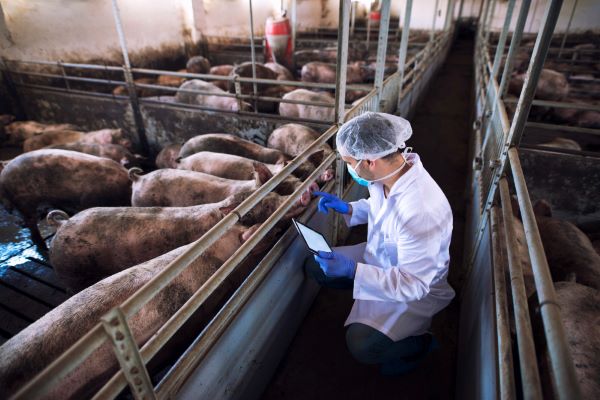
Pig feed additives are auxiliary substances or chemical substances added to pig feed to improve growth, production efficiency, maintain pig health and nutritional balance. It can provide pigs with the necessary nutrients such as amino acids, vitamins, and minerals. It can also improve the digestibility and absorption of pig feed, strengthen the immunity of pigs, inhibit the growth and reproduction of pathogenic bacteria, and reduce the risk of disease. These additives can be divided into several types, including the following,
Vitamins and minerals:
Vitamins and minerals are essential nutrients for the growth and development of pigs. Adding vitamins and minerals will ensure that pigs receive adequate nutrition, increase growth rate and productivity.
Antibiotics:
Antibiotics are a common feed additive. Why are antibiotics always added to feeds? Because pigs, chickens, and aquatic animals are all raised in groups. Due to the high density of farming, there is a high risk of outbreaks of disease on a large scale, so it is necessary to add drugs. In addition to high doses of antibiotics at the onset of the disease, prophylactic dosing is also commonly used, but the main cause of most large outbreaks of disease is now mostly viral. Antibiotics are therefore ineffective against viruses and prolonged use of antibiotics is likely to produce superbugs. When antibiotics are needed, there will be no drugs available, not only for pigs but also for humans.
Immunity boosters:
Immunity boosters are additives that boost the immune system of pigs in anticipation of preventing viral infections. These additives can improve the digestion and absorption of feed, thereby increasing growth rates and productivity.
Enzymes:
Enzymes help pigs to better digest and absorb the nutrients in their feed, thus improving productivity and economic efficiency.
VAP Non-Antibiotic Additives:
Apart from the above-mentioned additives, viral diseases are currently the main problem for pig farmers, VAP Non-Antibiotic pig feed additives can assist the immune system in producing targeted immune responses, which can effectively prevent the spread of viral infections in the herd. It can therefore reduce the incidence of disease, reduce pig mortality and improve the performance of the whole farm (farrowing, daily weight gain, feed nutritional efficiency, breeding rate, etc.).
● What are the benefits of using pig feed additives?
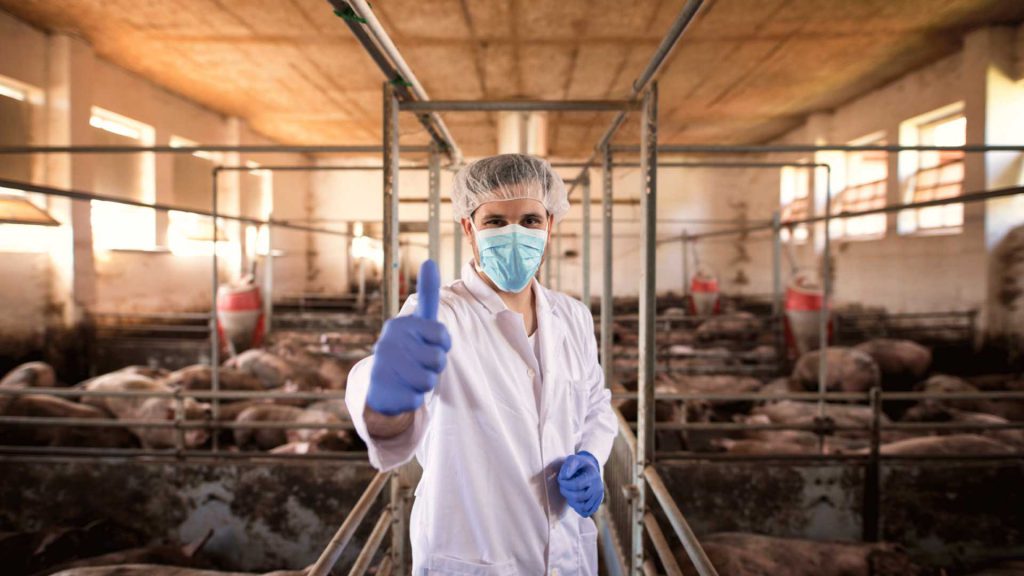
- Promote growth and weight gain in pigs:
In addition to boosting vitamins, minerals, and enzymes, the addition of VAP non-antibiotic pig feed additives can also improve nutrient absorption and performance, growth, and weight gain in pigs, thereby increasing production efficiency. - Improve feed utilization:
Enzymes and VAP non-antibiotic pig feed additives can maintain the balanced development of intestinal flora, improve the digestion and absorption capacity of pigs, improve feed utilization, reduce feed waste, and reduce feed costs. - Prevention and treatment of diseases:
The addition of VAP non-antibiotic pig feed additives can prevent and treat pig diseases, increase the vitality and health of newborn piglets, and reduce losses and mortality. - Improving the reproductive performance and service life of sows:
The addition of specific VAP non-antibiotic pig feed additives can improve reproductive disorders caused by viral diseases in sows and increase the annual litter size. - Reduce environmental pollution:
VAP is a naturally biodegradable, heavy metal-free, non-antibiotic pig feed additive. It increases feed utilization, reduces the emission of contaminants in manure, and has a negative impact on the environment.
In conclusion, the use of VAP non-antibiotic pig feed additives can improve the growth and production efficiency of pigs, while protecting the environment and the interests of consumers.
● What types of pig feed additives are available?
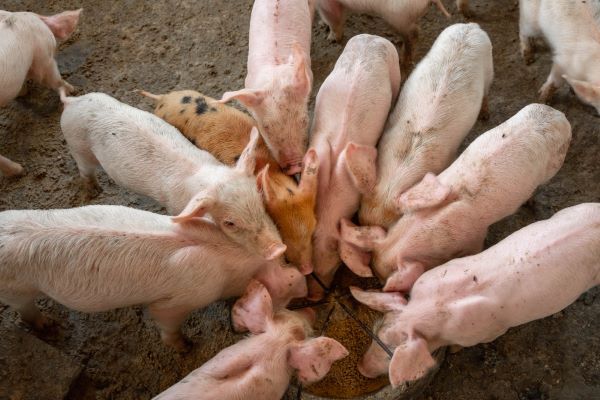
Many types of pig feed additives can be selected according to specific needs and purposes. Here are some common pig feed additives:
- Vitamins and minerals:
Vitamins and minerals are essential nutrients for the growth and development of pigs to ensure adequate nutrition, growth rate, and production efficiency. - Antibiotics:
Antibiotics can prevent and treat diseases in pigs, promote growth, and prevent the spread of certain diseases. - Immunity boosters:
Immunity boosters are additives that boost the immune system of pigs in anticipation of preventing viral infections. These additives can improve the digestion and absorption of feed, thereby increasing growth rates and productivity. - Enzymes:
Enzymes help pigs to better digest and absorb the nutrients in their feed, thus improving productivity and economic efficiency. - Probiotics and prebiotics:
Probiotics and prebiotics can improve the balance of intestinal flora in pigs, enhance intestinal immunity, and prevent the occurrence of diseases. - Antioxidants:
Antioxidants can protect pigs from free radical damage, improve the quality and taste of pork, and extend the shelf life of pork.
VAP Non-Antibiotic Pig Feed Additives: Apart from the above-mentioned additives, viral diseases are currently the main problem for pig farmers, VAP Non-Antibiotic pig feed additives can assist the immune system in producing targeted immune responses, which can effectively prevent the spread of viral infections in the herd. It can therefore reduce the incidence of disease, reduce pig mortality and improve the performance of the whole farm (farrowing, daily weight gain, feed nutritional efficiency, breeding rate, etc.).
In short, the selection of pig feed additives should be based on factors such as the growth stage, nutritional needs, and feed formulation of the pig; and they should be used in accordance with national and regional regulations.
● How are pig feed additives administered?
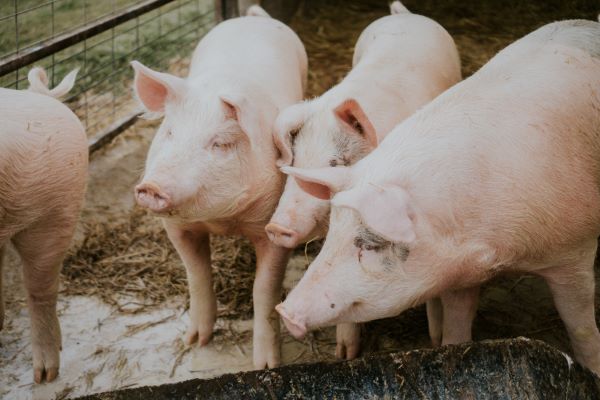
At present, the biggest problem for pig farmers is viral diseases, and sows are the longest-farmed, so almost all the sources of viral diseases come from sows. The production value of the sow herd is also the highest on the farm, so protecting each sow to maintain healthy and good reproductive traits is the most important and best production benefit for the farm.
The long-term use of VAP non-antibiotic pig feed additives in sow herds allows farms to:
- Improve reproductive disorders in sows.
- Increase the number of litter per year.
- Increase the number of weaning piglets
- Increase the average service life of sows.
In short, the use of pig feed additives should be selected and used according to specific situations and needs to ensure the safety and effectiveness of additives.
● Are pig feed additives safe for consumption by humans?

Pig feed additives are usually designed and used with safety for human consumption in mind. Many countries and regions have relevant legal regulations and standards and require additives to pass a series of evaluations and tests before use to ensure the safety of pig feed additives for human health.
Therefore, Senmu Medical Insurance Company has long-term cooperative development with various medical research centers in Taiwan to develop technologies for disease prevention, aging issues, and health promotion. Senmu adheres to the spirit of prevention over cure, learns the spirit of the clinical medicine of Huatuo, and integrates the micro medicine of the West and the macro medicine of Chinese medicine. Dealing with the causes of diseases with a professional, sincere, and active attitude is the core spirit of every research Senmu has conducted.
Our philosophy is “to follow the laws of development and to nip viral in the bud”. The ingredients and inspirations are drawn from the natural environment, whereby the substances from nature are used in precise medicine to solve the challenges and problems faced by livestock farms today.
Overall, VAP non-antibiotic pig feed additives have been used for a long time to replace the prophylactic addition of antibiotics. It turns out that VAP non-antibiotic pig feed additives can indeed achieve the following without ensuring the safety of human consumption:
- Reduce disease outbreaks and mortality.
- Promote the growth efficiency of pigs.
- Reduce feeding costs and strengthen the competitiveness of breeding enterprises.
● Are there any negative side effects of using pig feed additives?
Pig feed additives are safe when used correctly and in proper doses, but they can cause adverse reactions or side effects in pigs if used improperly or excessively. Here are some possible adverse reactions or side effects:
- Residues: Some feed additives may leave residues in the pigs, and if these pigs are slaughtered and consumed as food, then humans may ingest the residues of these additives. Therefore, the amount of residue must be strictly controlled when using pig feed additives to ensure food safety.
- Allergic reactions: Some additives may cause allergic reactions in pigs, such as itchy skin, breathing difficulties, diarrhea, and other symptoms. When using these additives, it is important to keep an eye on your pigs’ reactions and to stop using them immediately if any adverse reactions occur.
- Immunosuppression: Certain additives may suppress the immune system of pigs, making them less resistant to disease and susceptible to disease. For this reason, when using these additives, pigs should be kept in a hygienic and healthy environment to reduce the incidence of disease.
- Antibiotic resistance: Some additives may contain antibiotic ingredients. Prolonged use of antibiotics may lead to the development of resistance in pigs, further affecting the health of humans and animals. Hence, when using these additives, the dosage and duration of use should be strictly observed to avoid prolonged or inappropriate use.
VAP is a non-antibiotic pig feed additive that has been rigorously tested by an impartial third party. It has also been proven to be antibiotic-free, heavy metal-free, and environmentally friendly, making it a natural and harmless feed additive for pigs.
● How do pig feed additives affect the environment?

The environmental impact of pig feed additives depends on the type of additive and how it is used. The following are some of the possible effects,
1. Water pollution
Some additives may be discharged into the water in pig excreta, which can pollute the water quality, for example, excessive use of additives such as antibiotics and hydrochloric acid will lead to an increase in antibiotic-resistant bacteria in the water, thereby aggravating the degree of water pollution.
2. Soil pollution
Some additives may be carried into the soil by pig excreta, thus polluting the soil. For example, excessive use of additives such as nitrogen and phosphorus fertilizers may lead to high nutrient concentrations in the soil, affecting the ecological balance of the soil.
3. Air pollution
Certain additives may produce odors in the pig house which can affect the air quality. For example, chemicals such as methionine and methionine added to feed can produce unpleasant odors which can affect the surrounding environment and human health.
4. Ecological effects
Pig feed additives may have an impact on the surrounding ecological environment. For example, some additives may affect the growth and reproduction of insects such as bees and butterflies, thus affecting the balance of the ecosystem.
In general, the use of certain pig feed additives may have a negative impact on the environment. Choosing natural, residue-free, and non-polluting feed additives is not only a way to protect the environment and reduce pollution, but it is also a minimum principle that everyone involved in the farming industry must be concerned with.
VAP non-antibiotic pig feed additives have been rigorously tested by an impartial third party. It has also been proven to be antibiotic-free, heavy metal-free, and free from environmentally harmful residues, making it a natural and harmless feed additive for pigs to ensure the health and safety of the environment.
● How much do pig feed additives cost?
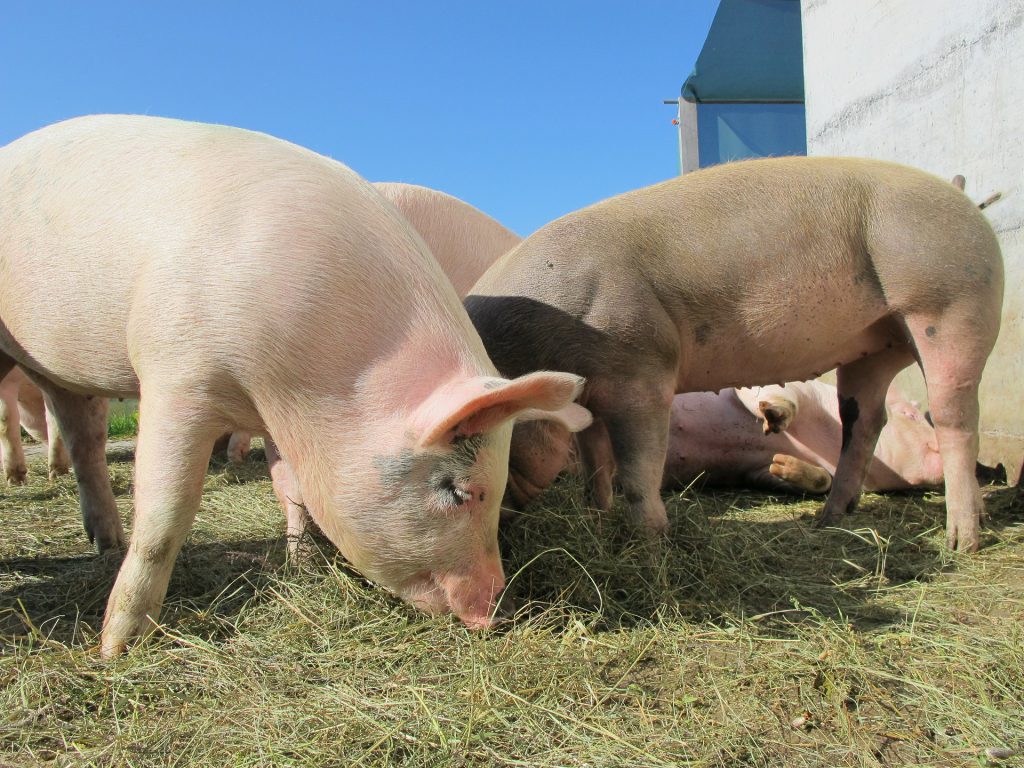
The cost of pig feed additives depends on factors such as the type of additive, usage amount, and the purpose of use. Generally speaking, the cost of pig feed additives accounts for a certain percentage of the total cost of pig feed, but the exact percentage varies depending on the type of additive, for example, some basic nutritional additives such as vitamins and minerals are relatively low cost, usually accounting for around 1% to 3% of the total cost of pig feed. The cost of some functional additives, such as antibiotics, enzyme preparations, acidulants, etc., will be relatively high, accounting for 5% to 10% or even higher of the total cost of pig feed. In addition, the cost of pig feed additives will also be affected by factors such as market supply, demand, and product quality.
Typically, high-quality additives are relatively costly, but also offer better benefits and safety.
The long-term experience and calculations of the use of VAP non-antibiotic pig feed additives have shown that, on the basis of cost and benefit, the addition of VAP non-antibiotic pig feed additives is helping farmers to reduce farming costs, avoiding the risk of mass mortality of pigs due to viral diseases, and indirectly helping to protect the farming industry’s assets.
● Can pig feed additives improve the quality of pork meat?
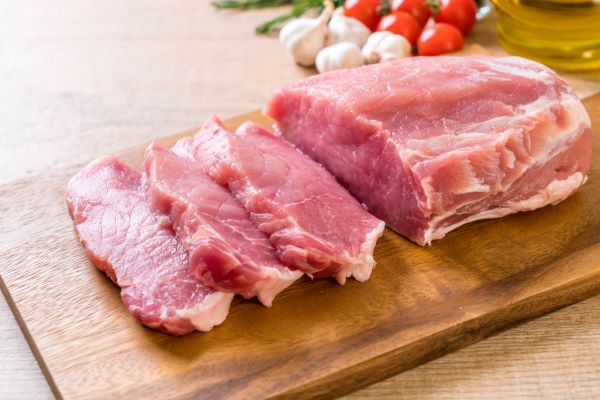
Pig feed additives can improve pork quality to a certain extent. The type of additive and the method of use will affect its effectiveness. Here are some common pig feed additives and their impact on pork quality,
1. Vitamins and minerals
These additives can improve the growth, metabolism, and immune system function of pigs, and can also improve the nutritional value and quality of pork.
2. Antibiotics
Antibiotics can reduce the risk of disease and infection and improve the growth rate and efficiency of pigs. However, the long-term use of antibiotics can lead to the development of resistant strains of bacteria, which can affect human and animal health.
3. Enzyme preparations
Enzyme preparations can improve the absorption and utilization of energy and nutrients in feed by pigs, thereby improving growth rate and feeding efficiency. At the same time, enzymes can also improve the quality and taste of pork.
4. Acidifiers
Acidifiers can improve the balance of flora in the intestines of pigs, and reduce the growth of pathogenic bacteria, thereby reducing the risk of disease and increasing the growth rate of pigs. In addition, acidifiers can improve the color and texture of pork.
Long-term experience with VAP non-antibiotic pig feed supplements has shown that, with the prevention of cluster infections and deaths from viral diseases on a large scale, it can also repair mucosal cells, increase nutrient absorption and improve intestinal health and bacteriological balance.
● Where to buy pig feed additives in Asia?
In Asia, pig feed additives can be purchased in a number of locations, including agricultural input stores, feed processing plants, online stores, etc.
However, VAP non-antibiotic pig feed additives can only be ordered by Senmu Medical Insurance Co., Ltd. in Taiwan, if you are willing to cooperate or interested in purchasing, you can contact us.

Senmu Information:
Address: No. 30, Ln. 263, Sec. 2, Chengxi St., Annan Dist., Tainan City 709016, Taiwan (R.O.C.)
Tel: +886 983746049
Email: sales@senmujnj.com
Moreover, we also offer other communication software, which is available on our website!

